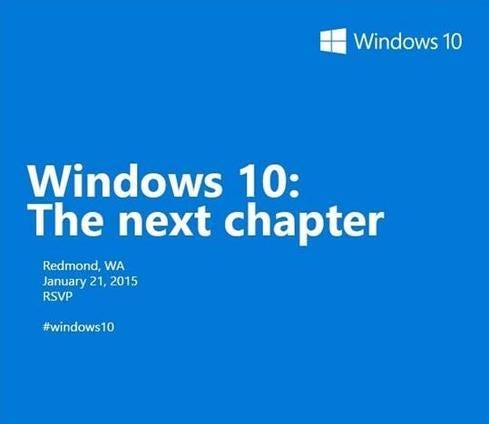CEO John Chen is asking legislators to expand the definition of net neutrality to ensure an open mobile app ecosystem. Irony, anyone?


Windows 10: 7 Predictions Of What's Next
Windows 10: 7 Predictions Of What's Next (Click image for larger view and slideshow.)
BlackBerry CEO John Chen is aiming to ride the net neutrality bandwagon to a more open mobile app ecosystem that, theoretically, would serve to aid his company's products and services. In the process, he's making a bid to expand the definition of what is protected under any potential net neutrality legislation.
Chen asked US lawmakers to expand the definition of net neutrality to include a prohibition against application providers discriminating against operating systems. The request was made in a letter sent Wednesday to John Thune, chairman of the Senate Committee on Commerce, Science and Transportation; Fred Upton, chairman of the House Committee on Energy and Commerce; and Ranking Committee Members U.S. Senator Bill Nelson, and U.S. Representative Frank Pallone Jr.
The operating system Chen has in mind is BlackBerry OS, which reached peak popularity in the third quarter of 2009 and has since fallen from favor. BlackBerry, known as RIM at the time, sold more than 8.5 million phones that quarter, according to research firm Gartner. In the third quarter of BlackBerry's 2015 fiscal year, corresponding to the three months that ended on Nov. 29, 2014, BlackBerry said it sold approximately 1.9 million smartphones. Gartner said BlackBerry's share of global smartphone sales for the third quarter of 2014 was 0.8%.
[ Want to sort net neutrality fact from fiction? Read Net Neutrality: Too Much Spin, Not Enough Facts. ]
Net neutrality refers to the non-discriminatory treatment of network traffic by network service providers, with some exceptions for quality of service and security concerns.
Although the scope of those exceptions remains open to debate, Chen insists that there's "widespread disagreement" about the definition of net neutrality and argues that the term's hazy definition should be expanded to prohibit practices such as Apple's refusal to make its iMessage app available on BlackBerry or Android devices and Netflix's refusal to makes its streaming service available on BlackBerry devices. It's hard to miss the irony in Chen's request, given that in the not-too-distant past, BlackBerry's operating systems, apps, and even its data network were once completely proprietary.
The Federal Communications Commission next month is expected to vote on rules that aim to apply some form of net neutrality on network operators, possibly by reclassifying broadband providers as common carriers under Title II of the Communications Act.
Chen's proposal, were it by some miracle adopted by the Federal Communications Commission, would put an end to platform-specific app development. Developers creating iOS or Android apps would also have to release a BlackBerry-compatible version.
"[N]eutrality must be mandated at the application and content layer if we truly want a free, open and non-discriminatory Internet," said Chen. "All wireless broadband customers must have the ability to access any lawful applications and content they choose, and applications/content providers must be prohibited from discriminating based on the customer's mobile operating system."
Chen's proposal would impose huge costs on companies making software. It would require Apple, for example, to create and maintain versions of mobile Safari for Android, BlackBerry, Windows Phone, and potentially other mobile operating systems -- Symbian, anyone? It would affect Google, Microsoft, and just about every other developer of mobile apps. It would call into question native development, because even with tools to convert native code to other platforms, such translation rarely works without platform-specific adjustments. It would make cross-platform development -- a practice scorned by former Apple CEO Steve Jobs because it enforces a lowest-common-denominator experience -- all but mandatory.
Thankfully, it won't happen. The purpose of net neutrality, however it's defined, is not to eliminate platform distinctions or competition. It's to ensure that network service providers cannot interfere with the delivery of lawful content from third parties.
It would be reasonable to ask that platform providers be required to allow the installation of lawful third-party apps without contractual or technical barriers -- were Apple forced to allow iOS apps to be sold outside the iTunes App Store like OS X apps are, the end of its iOS distribution monopoly would enhance competition and benefit consumers. But it's not reasonable to ask software makers to expend resources to prop up struggling companies like BlackBerry, at least not under a capitalist economy.
Attend Interop Las Vegas, the leading independent technology conference and expo series designed to inspire, inform, and connect the world's IT community. In 2015, look for all new programs, networking opportunities, and classes that will help you set your organization’s IT action plan. It happens April 27 to May 1. Register with Discount Code MPOIWK for $200 off Total Access & Conference Passes.
About the Author(s)
You May Also Like







